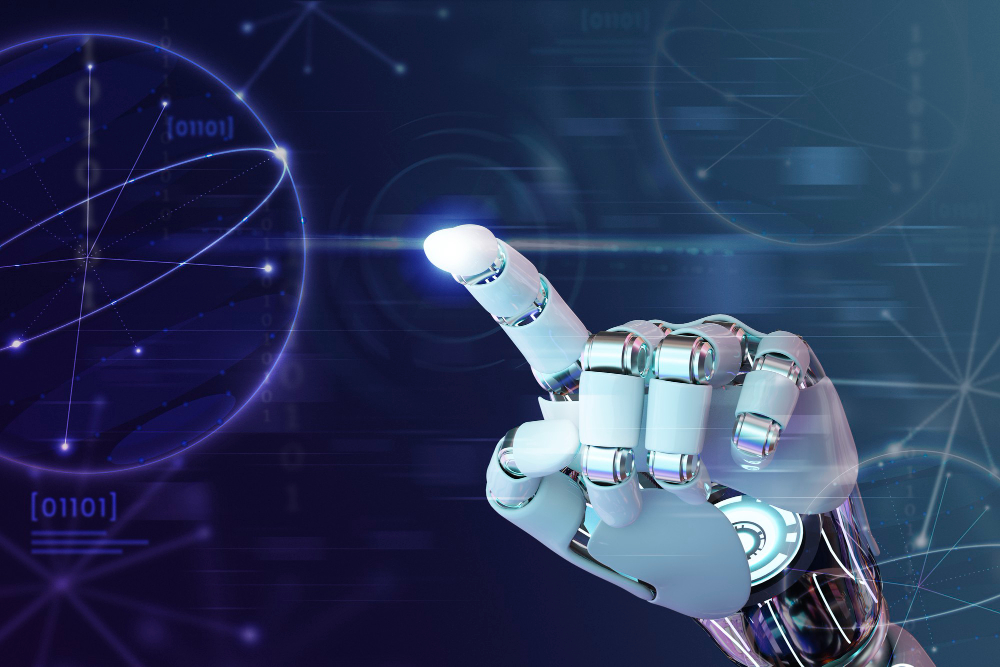MLOps: What It Is, Why It Matters, and How to Implement It

In today’s data-driven world, the term “MLOps” has become a transformative force in machine learning and artificial intelligence. Short for “Machine Learning Operations,” MLOps represents the fusion of machine learning and DevOps practices, offering a structured approach to streamline the development, deployment, and management of machine learning models. In this MLOps course, we delve into the core concepts of MLOps, exploring what it is and why it matters and providing practical insights into how organizations can effectively implement MLOps strategies. Join us on a journey to harness the power of MLOps and unlock the full potential of your machine learning initiatives.
The Importance of MLOps
Enrolling in an MLOps course has become increasingly imperative in today’s rapidly evolving data-driven landscape. MLOps, or Machine Learning Operations, bridge between the development and use of machine learning, ensuring the seamless integration of AI models into real-world applications. Here’s why understanding the importance of MLOps through a dedicated course is crucial:
- Optimizing Model Deployment: MLOps equips individuals with the skills to streamline the deployment of machine learning models, reducing time-to-market and operational hiccups.
- Enhancing Collaboration: It fosters collaboration between data scientists, engineers, and operations teams, fostering a cohesive approach to AI project development.
- Ensuring Scalability: MLOps techniques enable the efficient scaling of ML workflows, making them adaptable to evolving business needs.
- Monitoring and Maintenance: The course delves into continuous model monitoring and maintenance strategies, vital for sustaining model performance over time.
- Risk Mitigation: Understanding MLOps helps in identifying and mitigating risks associated with model drift, data quality, and security
- Staying Competitive: MLOps expertise stands out as a valuable skill in a competitive job market, making one more marketable in the data science and AI sectors.
Key Components of MLOps
Key Components of MLOps involve various crucial elements in the implementation and management of machine learning operations:
- Version Control: Tracking changes to machine learning models and data for reproducibility.
- CI/CD Pipelines: Building automated Continuous Integration and Continuous Deployment workflows for efficient model deployment.
- Monitoring and Logging: Implementing robust systems for real-time model performance tracking and error logging.
- Automated Testing: Ensuring model reliability through automated testing and validation processes.
- Model Registry: Maintaining a centralized repository for storing and cataloging ML models.
- Environment Management: Managing consistent development and production environments.
- Collaboration Tools: Facilitating collaboration among data scientists, engineers, and operations teams.
- Security and Compliance: Incorporating security measures and ensuring regulatory compliance in ML operations.
MLOps Tools and Technologies
- DevOps Integration: MLOps relies on established DevOps practices, including version control, CI/CD pipelines, and infrastructure as code.
- Containerization: Tools like Docker facilitate packaging machine learning models and dependencies for consistent deployment.
- Orchestration: Kubernetes automates scaling and management of ML workloads in containers.
- Pipeline Orchestration: Platforms like Apache Airflow help construct, schedule, and monitor ML workflows.
- Cloud Services: AWS, Azure, and GCP offer managed services for model hosting, scaling, and monitoring.
- Model Registry: Tools like MLflow track model versions, metadata, and dependencies.
- Monitoring and Logging: Prometheus, Grafana, and ELK Stack ensure real-time performance tracking.
- Automated Testing: PyTest, TensorFlow Data Validation, and others verify model accuracy and data quality.
Implementing MLOps in Your Organization
Implementing MLOps in your organization involves establishing structured workflows to seamlessly integrate machine learning models into production. Begin by assembling cross-functional teams and defining clear roles. Adopt version control, CI/CD pipelines, and automated testing to ensure model reproducibility and reliability. Leverage containerization and cloud services for scalability. Align MLOps practices with overarching business goals and prioritize ongoing monitoring and maintenance. Emphasize collaboration between data scientists, engineers, and operations teams to achieve a successful MLOps implementation that maximizes the value of machine learning initiatives.
Challenges and Pitfalls in MLOps
Implementing MLOps, while essential, comes with its share of challenges and potential pitfalls:
Data Quality and Governance:
- Ensuring clean, reliable data inputs is a persistent challenge.
- Establishing data governance practices to maintain data quality and compliance is critical.
Model Drift and Monitoring:
- Models can degrade over time; continuous monitoring and adaptation are essential.
- Detecting and addressing model drift is a complex task.
Security and Privacy Concerns:
- Protecting sensitive data and model outputs is paramount.
- Safeguarding against adversarial attacks and data breaches is an ongoing challenge.
Team Collaboration:
- Bridging the gap between data scientists, engineers, and operations teams can be challenging.
- Effective communication and collaboration are crucial.
Scalability and Resource Management:
- Scaling ML workflows efficiently, especially in cloud environments, requires careful resource management.
- Balancing cost-effectiveness with performance can take time and effort.
Regulatory Compliance:
- Navigating the evolving landscape of AI regulations and ethical considerations is complex.
- Ensuring compliance with regulations like GDPR and industry-specific standards is a constant concern.
Legacy Systems Integration:
- Integrating MLOps into existing infrastructure can take time and effort.
- Legacy systems may need help to accommodate modern MLOps practices.
Talent and Skill Gap:
- Finding skilled MLOps professionals and upskilling existing teams is a challenge.
- MLOps is a multidisciplinary field, requiring expertise in both ML and DevOps.
Addressing these challenges proactively is crucial for successful MLOps implementation and sustained AI-driven value in organizations.
Future Trends in MLOps
- AutoML Advancements: Increasing automation in model development and deployment.
- Explainable AI Integration: Emphasis on interpretable models for transparency and compliance.
- MLOps in Edge Computing: Applying MLOps practices to edge devices for real-time processing.
- AI Ethics and Governance: Integrating ethical considerations into MLOps workflows.
- Federated Learning Implementation: Secure, collaborative model training across distributed environments.
- Quantum Computing Impact: Exploring MLOps in the context of quantum computing capabilities.
- Enhanced Model Monitoring: Improved tools for tracking model behavior and performance in production.
- Hybrid Cloud MLOps: Integrating on-premise and cloud-based MLOps workflows for flexibility.
Summary
Understanding MLOps is essential for organizations navigating the complex intersection of machine learning and DevOps. This discipline offers a structured approach to overcome challenges in model deployment, ensuring reproducibility and scalability while fostering collaboration. Individuals and teams can consider enrolling in a dedicated MLOps course to embark on this transformative journey. By mastering MLOps principles and tools, they can harness its power to drive innovation, optimize processes, and make data-driven decisions in the ever-evolving landscape of AI and machine learning.






